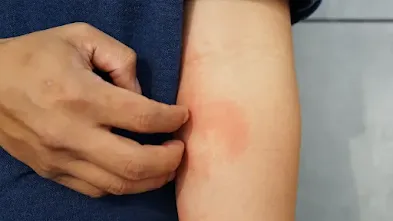Eczema: Understanding the Itchy Skin Condition
Introduction
Eczema, also known as dermatitis, is a common skin condition that affects millions of people worldwide. It is characterized by inflamed, itchy skin that can be uncomfortable and frustrating for those who suffer from it. While it often begins in childhood, eczema can persist into adulthood or develop later in life. This article aims to provide a comprehensive understanding of eczema, its types, causes, symptoms, and treatment options, along with some practical tips for managing and coping with this condition effectively.
What is Eczema?
Eczema is a chronic skin condition that leads to skin inflammation, causing it to become red, itchy, and sometimes swollen. It is not contagious and can vary in severity, with some experiencing mild symptoms while others endure more severe flare-ups. Eczema can occur on any part of the body, but it is commonly found on the face, hands, knees, wrists, and feet.
Types of Eczema
There are several types of eczema, each with its unique characteristics and triggers. Understanding these types is essential for proper diagnosis and effective management.
Atopic Dermatitis
Atopic dermatitis is the most prevalent form of eczema and is often seen in individuals with a family history of allergies or asthma. It typically starts in childhood and may continue into adulthood.
Contact Dermatitis
Contact dermatitis develops when the skin comes into direct contact with an irritant or allergen. It can be further categorized into allergic contact dermatitis and irritant contact dermatitis.
Dyshidrotic Eczema
Dyshidrotic eczema is characterized by small blisters that form on the palms, soles of the feet, or sides of the fingers. It can be extremely itchy and painful.
Nummular Eczema
Nummular eczema appears as round, coin-shaped spots on the skin. It often occurs after an injury to the skin, such as a bug bite or a burn.
Seborrheic Dermatitis
Seborrheic dermatitis is a common type of eczema that affects the scalp, face, and torso. It is often associated with dandruff.
Stasis Dermatitis
Stasis dermatitis usually affects the lower legs and occurs due to poor circulation in the veins.
Allergic Contact Dermatitis
Allergic contact dermatitis is a delayed hypersensitivity reaction to an allergen that comes into contact with the skin.
Neurodermatitis
Neurodermatitis is characterized by thick, scaly patches of skin that are caused by repeated scratching or rubbing of the affected area.
Causes and Triggers
The exact cause of eczema remains unknown, but a combination of genetic and environmental factors is believed to contribute to its development. Some common triggers that can worsen eczema symptoms include:
Allergens such as pollen, pet dander, dust mites, and mold.
Irritants like soaps, detergents, fragrances, and certain fabrics.
Extreme weather conditions, particularly cold and dry air.
Stress and emotional factors.
Hormonal changes.
Certain foods.
Identifying and avoiding triggers is vital in managing eczema effectively.
Symptoms and Diagnosis
The symptoms of eczema can vary from person to person, but some common signs include:
Persistent itching
Red or brown patches on the skin
Dry, scaly, or leathery skin
Swollen and sensitive skin
Oozing or crusting
Changes in skin color or pigmentation
Diagnosing eczema usually involves a physical examination and evaluation of medical history. In some cases, a skin biopsy may be necessary.
Treatment Options
The treatment of eczema aims to reduce inflammation, relieve itching, and prevent flare-ups. Several treatment options are available, including:
Emollients and moisturizers keep the skin hydrated.
Topical corticosteroids to reduce rash and itching.
Topical calcineurin inhibitors for mild to moderate eczema.
Antihistamines to control itching.
Phototherapy or light therapy to improve symptoms.
Systemic medications for severe cases.
The choice of treatment depends on the type and severity of eczema.
Home Remedies and Self-Care
In addition to medical treatments, there are several self-care measures and home remedies that can help manage eczema effectively. These include:
Moisturizing the skin regularly to lock in moisture.
Identifying and avoiding triggers.
Applying cool compresses to soothe inflamed skin.
Opting for comfortable and breathable clothing.
Practicing stress management techniques.
Coping with Eczema
Living with eczema can be challenging, both physically and emotionally. Joining support groups, seeking psychological support, and educating friends and family about the condition can make coping easier.
Eczema in Children
Eczema is common in children, and it requires special attention. Baby eczema and childhood eczema have their unique challenges. Proper skincare, avoiding triggers, and seeking medical advice are essential for managing eczema in kids.
Eczema and Lifestyle
Certain lifestyle factors can influence eczema flare-ups. Maintaining a balanced diet, considering the impact of climate, and following a suitable skincare routine can play a significant role in managing the condition.
Complications of Eczema
Untreated or poorly managed eczema can lead to complications, including skin infections and the development of neurodermatitis and lichen simplex chronicus.
Debunking Eczema Myths
There are several misconceptions surrounding eczema. It is crucial to separate fact from fiction to make informed decisions about managing the condition.
Future Research and Treatment
Researchers are continually exploring new treatment options and gaining a better understanding of eczema. Future advancements in medical science may lead to more effective treatments.
Conclusion
Eczema is a challenging but manageable skin condition that affects millions of people worldwide. By understanding the different types, causes, and triggers of eczema, as well as the available treatment options, individuals can take proactive steps to manage their symptoms effectively. A combination of medical treatments, home remedies, and lifestyle adjustments can significantly improve the quality of life for those living with eczema.





